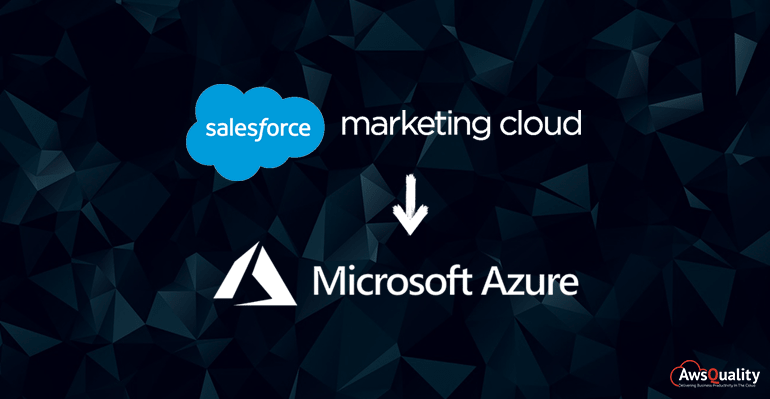
Salesforce recently announced that they are going to make use of Microsoft Azure for its Marketing Cloud platform. Microsoft and Salesforce have announced plans to expand their strategic partnership through the migration of Salesforce’s Marketing Cloud to Microsoft Azure. The move is initiated to allow Salesforce to optimize Marketing Cloud performance to meet increasing customer demands.
Also check: Salesforce Marketing Cloud Journey Builder
Why this transition possible?
It is possible due to compatibility with Microsoft SQL. Salesforce has opted for Azure because it is a trusted platform with a global footprint, multi-layered security approach, robust disaster recovery strategy with auto-failover and automatic updates. Marketing Cloud also maintains a long relationship with Microsoft SQL which makes the transition to SQL on Azure a natural decision.
Here are some of the advantages that are listed below…
- It will allow the company’s customers to benefit from Azure’s infrastructure which will help brands manage data security, privacy and compliance requirements on a global scale.
- Able to take advantage of improved collaboration and greater efficiency through strategic partnership.
- The integration between the widely-used Salesforce CRM and Microsoft Teams can be expected to drive further collaboration across sales and service teams by increasing accessibility to data directly within the Teams app.
- The combination of Salesforce and Microsoft enables our teams to work better together to enhance the guest experience at every touchpoint.
- The move is anticipated to allow Salesforce to optimize Marketing Cloud performance to meet increasing customer demands.
- The well planned and strategic partnership between Salesforce and Microsoft will leverage another plan for new integrations to connect its Sales and Service clouds with Microsoft team/platform.
- The power of Azure and Microsoft Teams with Salesforce together helps organizations to better serve customers.
- Salesforce marketing reps are empowered with Salesforce Marketing Cloud to know their customers and do more personalized marketing with Einstein, and engage with them across any channel, and analyze the impact to improve campaign performance. Therefore, by bringing its Marketing Cloud working system to Azure, Salesforce joins the over 95% of Fortune 500 companies benefitting from an Azure infrastructure offering the most global regions of any cloud provider.
- Reduce customer onboarding times and enable customers to expand globally more quickly with Azure’s global footprint and help address local data security, privacy and compliance requirements.
- Optimized transition to Azure enables mutual customers to be more productive, including the hundreds of thousands of monthly active users using Salesforce’s Microsoft Outlook integration to create, communicate and collaborate.
- Salesforce and Microsoft Teams integration will boost productivity.
Conclusion
Salesforce has adopted Microsoft Azure because of its trustworthy platform with a global footprint, multi-layered security approach, robust disaster recovery strategy with auto-failover and finally automatic updates.
As a part of this collaboration, Salesforce will further move to implement new integration that gives sales and service users the ability to search, view, and share Salesforce records directly within Teams.
Since Salesforce Marketing Cloud mainly targets business-to-consumer (B2C ) enterprises, therefore the choice of adopting Microsoft Azure makes sense in true context.
Do you need help? Our Salesforce Consultants will help you out. We can help you with any of your needs. It’s always our goal to help small businesses grow. Contact us today to start your growth journey.




